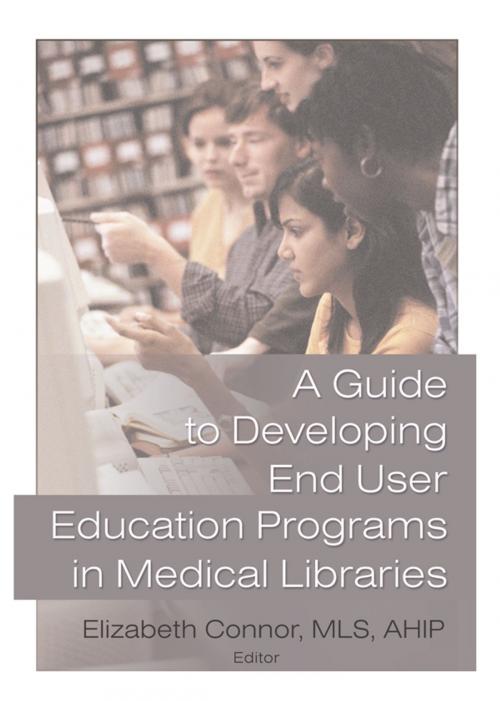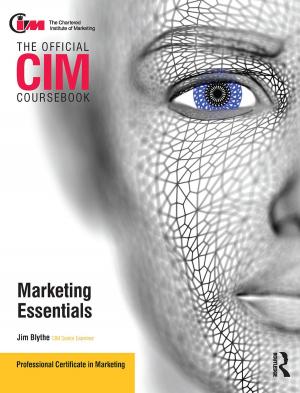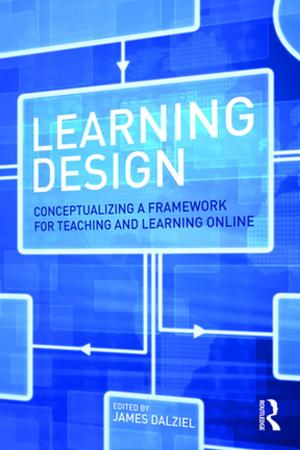A Guide to Developing End User Education Programs in Medical Libraries
Nonfiction, Reference & Language, Language Arts, Library & Information Services, Education & Teaching| Author: | Elizabeth Connor | ISBN: | 9781317788027 |
| Publisher: | Taylor and Francis | Publication: | February 4, 2014 |
| Imprint: | Routledge | Language: | English |
| Author: | Elizabeth Connor |
| ISBN: | 9781317788027 |
| Publisher: | Taylor and Francis |
| Publication: | February 4, 2014 |
| Imprint: | Routledge |
| Language: | English |
Explore a wealth of ideas, insights, and approaches that can be used or adapted by any medical library!
Curricular changes in the health professions, coupled with a growing acceptance of the Internet as a tool for daily living, have contributed to a climate of change and opportunity for health sciences libraries. A Guide to Developing End User Education Programs in Medical Libraries will help graduate students in library science, entry-level medical librarians, and experienced educators to understand best practices and to build, expand, and improve medical library-sponsored educational programs.
A Guide to Developing End User Education Programs in Medical Libraries is designed to aid and inform professionals who develop, teach, or evaluate end-user education programs in health sciences libraries. Eighteen case studies represent the ideas and approaches of more than fifteen private and public institutions in the United States and the Caribbean. The studies focus on effective end-user programs for medical information electives, veterinary medicine programs, health care informatics, and evidence-based medicine, plus instructional programs for teaching residents, ThinkPad-facilitated instruction, and more. The guide also examines how several medical libraries have created and expanded their end-user education programs.
The contributors to A Guide to Developing End User Education Programs in Medical Libraries are health sciences librarians from teaching hospitals, medical/dental/veterinary schools, and health professions-focused universities in a dozen U.S. states and the West Indies. Each of them is involved in designing, teaching, and evaluating user education.
This book will help you educate students of medicine, pharmacy, physical therapy, dentistry, and veterinary medicine, plus residents and practicing health professionals. The educational objectives and approaches in the case studies include:
-
clinical medical librarianship
-
integrating informatics objectives into curricula
-
developing credit and non-credit coursework
-
distance learning
-
using new and emerging technologies to improve instruction
The case studies in A Guide to Developing End User Education Programs in Medical Libraries follow a format similar to that of the structured abstract, including introduction, setting, educational approaches, evaluation methods, future plans, conclusion, and references. Some are illustrated with tables and figures. Several are supplemented by material in chapter-specific appendixes. Further information about specific classes, programs, or teaching philosophies is made available via Web sites featured in the book.
Let this valuable guide help you-and your institution-take advantage of the opportunities available at this exciting time in the evolution of library science!
Explore a wealth of ideas, insights, and approaches that can be used or adapted by any medical library!
Curricular changes in the health professions, coupled with a growing acceptance of the Internet as a tool for daily living, have contributed to a climate of change and opportunity for health sciences libraries. A Guide to Developing End User Education Programs in Medical Libraries will help graduate students in library science, entry-level medical librarians, and experienced educators to understand best practices and to build, expand, and improve medical library-sponsored educational programs.
A Guide to Developing End User Education Programs in Medical Libraries is designed to aid and inform professionals who develop, teach, or evaluate end-user education programs in health sciences libraries. Eighteen case studies represent the ideas and approaches of more than fifteen private and public institutions in the United States and the Caribbean. The studies focus on effective end-user programs for medical information electives, veterinary medicine programs, health care informatics, and evidence-based medicine, plus instructional programs for teaching residents, ThinkPad-facilitated instruction, and more. The guide also examines how several medical libraries have created and expanded their end-user education programs.
The contributors to A Guide to Developing End User Education Programs in Medical Libraries are health sciences librarians from teaching hospitals, medical/dental/veterinary schools, and health professions-focused universities in a dozen U.S. states and the West Indies. Each of them is involved in designing, teaching, and evaluating user education.
This book will help you educate students of medicine, pharmacy, physical therapy, dentistry, and veterinary medicine, plus residents and practicing health professionals. The educational objectives and approaches in the case studies include:
-
clinical medical librarianship
-
integrating informatics objectives into curricula
-
developing credit and non-credit coursework
-
distance learning
-
using new and emerging technologies to improve instruction
The case studies in A Guide to Developing End User Education Programs in Medical Libraries follow a format similar to that of the structured abstract, including introduction, setting, educational approaches, evaluation methods, future plans, conclusion, and references. Some are illustrated with tables and figures. Several are supplemented by material in chapter-specific appendixes. Further information about specific classes, programs, or teaching philosophies is made available via Web sites featured in the book.
Let this valuable guide help you-and your institution-take advantage of the opportunities available at this exciting time in the evolution of library science!















